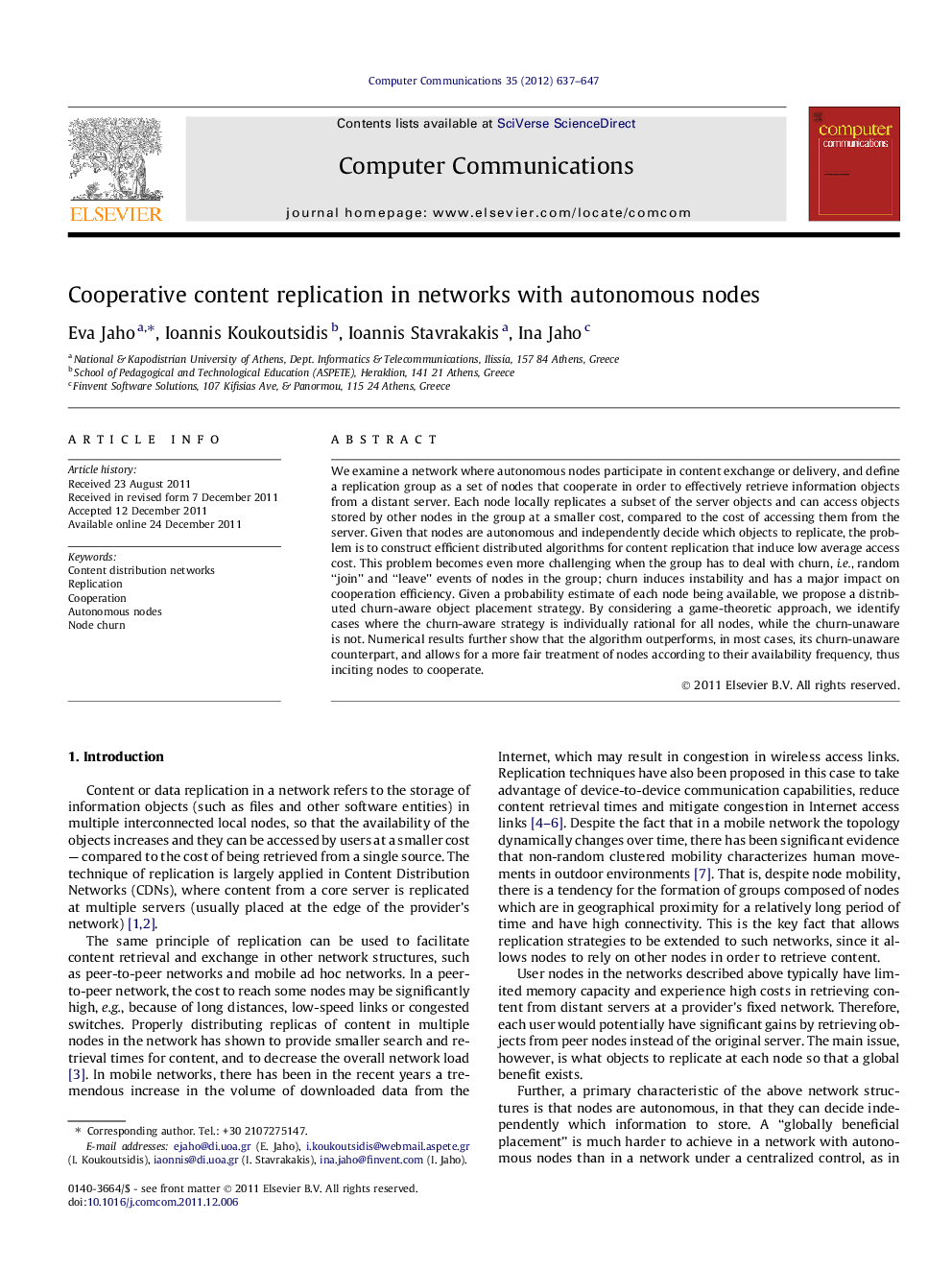| Article ID | Journal | Published Year | Pages | File Type |
|---|---|---|---|---|
| 450104 | Computer Communications | 2012 | 11 Pages |
We examine a network where autonomous nodes participate in content exchange or delivery, and define a replication group as a set of nodes that cooperate in order to effectively retrieve information objects from a distant server. Each node locally replicates a subset of the server objects and can access objects stored by other nodes in the group at a smaller cost, compared to the cost of accessing them from the server. Given that nodes are autonomous and independently decide which objects to replicate, the problem is to construct efficient distributed algorithms for content replication that induce low average access cost. This problem becomes even more challenging when the group has to deal with churn, i.e., random “join” and “leave” events of nodes in the group; churn induces instability and has a major impact on cooperation efficiency. Given a probability estimate of each node being available, we propose a distributed churn-aware object placement strategy. By considering a game-theoretic approach, we identify cases where the churn-aware strategy is individually rational for all nodes, while the churn-unaware is not. Numerical results further show that the algorithm outperforms, in most cases, its churn-unaware counterpart, and allows for a more fair treatment of nodes according to their availability frequency, thus inciting nodes to cooperate.
